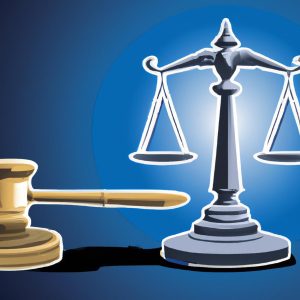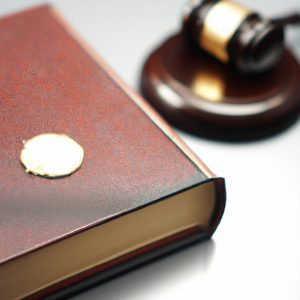As seasoned practitioners in the field of estate planning, our team at Morgan Legal Group understands the importance of preparing a comprehensive and legally sound will. For many individuals, the prospect of creating a will can be overwhelming, but with the right guidance and foresight, this process can be both manageable and rewarding. In this article, we will delve into the essential documents and information that you should bring when consulting with a lawyer to craft your will. By taking proactive steps to gather necessary materials, you can ensure that your final wishes are accurately documented and legally binding. Let us guide you through this crucial journey of safeguarding your legacy.
Key Documents to Gather Before Meeting with Your Lawyer
When preparing for a meeting with your lawyer to discuss your will, it is crucial to gather all the necessary key documents to ensure a smooth and productive consultation. By having these documents ready, you can provide your lawyer with all the relevant information needed to draft a comprehensive and legally binding will that reflects your wishes.
Some key documents to bring to your lawyer for your will include:
- Identification documents: such as your driver’s license, passport, or social security card.
- Financial documents: including bank statements, investment account information, and property deeds.
- Debt information: details of any outstanding debts, loans, or mortgages.
Understanding the Importance of Asset Inventory
It is crucial to bring a detailed asset inventory to your lawyer when discussing your will. An asset inventory provides a comprehensive list of all your assets, including both tangible and intangible items, as well as their values. This document helps your lawyer understand the full scope of your estate, allowing for a more accurate and effective estate planning process.
When compiling your asset inventory, be sure to include the following key items:
- Real Estate: List all properties you own, including primary residences, vacation homes, and rental properties.
- Financial Accounts: Include bank accounts, investment accounts, retirement accounts, and any other financial assets.
- Personal Property: Document valuable items such as jewelry, art, vehicles, and collectibles.
| Category | Assets |
|---|---|
| Real Estate | Primary Residence, Vacation Home |
| Financial Accounts | Bank Accounts, Investment Accounts |
| Personal Property | Jewelry, Art, Vehicles |
Specific Bequests and Distributions: Providing Detailed Instructions
To ensure that your wishes are accurately reflected in your will, it is essential to provide detailed instructions for specific bequests and distributions. When preparing to meet with your lawyer to discuss your will, it is important to bring the necessary documentation and information to facilitate the process. Be prepared to provide a list of all assets and liabilities, as well as any specific bequests you wish to make. This will help your lawyer draft a comprehensive will that accurately reflects your intentions.
In addition to asset and liability information, it is helpful to bring any relevant documents such as property deeds, investment statements, and insurance policies. If you have specific instructions for how you would like certain assets distributed or any conditions attached to bequests, be sure to communicate these clearly to your lawyer. Providing detailed instructions for specific bequests and distributions will help ensure that your wishes are carried out as intended after your passing. Trust our experienced team at Morgan Legal Group to assist you in creating a comprehensive and legally sound will.
Consideration for Naming Executors and Trustees in Your Will
When considering naming executors and trustees in your will, it is crucial to choose individuals who are trustworthy, responsible, and capable of carrying out your wishes. The executor of your will is responsible for ensuring that your assets are distributed according to your instructions, while a trustee manages any trusts you have established. Below are some important factors to consider when selecting these key roles in your estate plan:
- Responsibility: Choose individuals who are organized, reliable, and have good decision-making skills.
- Trustworthiness: Your executor and trustee should be people you trust to act in your best interests and follow your instructions faithfully.
| Role | Responsibilities |
|---|---|
| Executor | Distributing assets, paying debts and taxes, and handling any legal proceedings. |
| Trustee | Managing trust assets, making distributions to beneficiaries, and ensuring the trust operates according to your wishes. |
By carefully considering who to name as executors and trustees in your will, you can help ensure that your estate is administered smoothly and according to your wishes. Consult with an experienced estate planning attorney to discuss your options and create a comprehensive estate plan that meets your unique needs and goals.
Q&A
Q: Why is it important to bring specific items to a lawyer when creating a will?
A: Bringing specific items to a lawyer when creating a will ensures that your wishes are accurately reflected in the legal document.
Q: What documents should I bring to a lawyer when creating a will?
A: You should bring any existing wills, trusts, deeds, titles, and other legal documents that may be relevant to your estate planning.
Q: Should I bring a list of my assets and liabilities to a lawyer when creating a will?
A: Yes, bringing a list of your assets and liabilities can help your lawyer better understand your financial situation and ensure that all of your assets are properly accounted for in your will.
Q: Is it necessary to bring identification documents when meeting with a lawyer to create a will?
A: Yes, bringing identification documents such as a driver’s license or passport is important to verify your identity and ensure that the will is being created by the correct individual.
Q: Can I bring a list of beneficiaries and any specific bequests I want to include in my will?
A: Yes, bringing a list of beneficiaries and any specific bequests you wish to include in your will can help your lawyer draft the document according to your wishes and ensure that your loved ones are taken care of.
Q: Should I bring a list of potential guardians for my minor children to discuss with the lawyer?
A: Yes, bringing a list of potential guardians for your minor children is important to discuss with your lawyer to ensure that appropriate arrangements are made for their care in the event of your passing.
Final Thoughts
In conclusion, ensuring that you have all the necessary information and documents ready when meeting with your lawyer to create a will is crucial. By being organized and prepared, you can streamline the process and ensure that your wishes are accurately reflected in your legal documents. Remember, your will is a vital tool for protecting your assets and ensuring that your loved ones are taken care of after you’re gone. So, gather up those important papers and schedule a meeting with your lawyer today to start planning for the future. Your loved ones will thank you for taking the necessary steps to secure their future.
Title: What to Bring to Your Lawyer for Your Will: A Comprehensive Guide
Writing a will is an important step in preparing for the future and ensuring that your loved ones are taken care of after you are gone. However, creating a will can be a complex and overwhelming process. That’s why it’s crucial to seek the guidance of a qualified lawyer to ensure that your will is legally sound and accurately represents your wishes. In this article, we will discuss everything you need to bring to your lawyer when creating your will. From important documents to key decisions, we will cover it all. So let’s dive in.
Why Do You Need to Bring Things to Your Lawyer for Your Will?
Before we get into what specifically you should bring to your lawyer, let’s first understand why it’s essential to bring certain things in the first place. A will is a legal document that outlines how you want your assets to be distributed after your death. It’s a crucial document that ensures your loved ones are taken care of and your wishes are respected. Therefore, it’s essential to work with a lawyer who is knowledgeable about wills to ensure that your will is legally enforceable. Your lawyer will also be able to advise you on any laws or tax implications that may affect your decisions.
What to Bring to Your Lawyer for Your Will
1. Personal Information
The first thing you should bring to your lawyer is your personal information. This includes your full legal name, date of birth, social security number, and any other identifying information. Your lawyer will need this information to draft your will accurately and match it to your other legal documents.
2. Property and Assets Information
Next, you will need to provide your lawyer with a detailed list of all your assets and property. This includes things such as bank accounts, investments, real estate, vehicles, jewelry, and any other valuable items you own. Your lawyer will use this information to determine the distribution of your assets as per your wishes.
3. List of Beneficiaries
A beneficiary is a person or entity who will inherit your assets as specified in your will. It’s essential to have a clear and current list of beneficiaries to avoid any confusion or disputes later on. Bring an updated list of beneficiaries to your lawyer, including their full names and contact information.
4. Executor Information
An executor is the person responsible for carrying out your wishes as stated in your will. This individual should be someone you trust and is capable of handling your affairs. Bring your lawyer the name, address, and contact information of your chosen executor.
5. Guardianship Designations
If you have minor children, it’s crucial to designate a guardian in your will who will take care of them after your death. Be sure to bring this information to your lawyer, including the guardian’s full name and contact information. It’s also a good idea to have a backup guardian in case the primary one is unable or unwilling to fulfill their duties.
6. Previous Wills or Trusts
If you have any existing wills or trusts, be sure to bring them to your lawyer’s attention. Your lawyer can then review them and make necessary updates or changes to ensure that your estate plan is updated and legally binding.
7. Special Requests or Considerations
If you have any special requests or considerations for your will, be sure to discuss them with your lawyer. This can include funeral arrangements, charitable donations, or specific distributions of assets. Your lawyer can advise you on how to best incorporate these wishes into your will.
Benefits and Practical Tips
Creating a will can be a daunting and emotionally charged process. To make the experience smoother, here are some practical tips to keep in mind when working with your lawyer.
1. Prepare a List of Questions
Before meeting with your lawyer, it’s helpful to prepare a list of questions or concerns you may have. This will ensure that you cover everything you need to discuss and alleviate any uncertainty you may have about the process.
2. Be Honest and Open
It’s crucial to be honest and open with your lawyer when creating your will. This will ensure that your lawyer has all the necessary information to draft your will accurately.
3. Keep Your Will Updated
Life is unpredictable, and your circumstances may change in the future. It’s crucial to update your will whenever something significant happens in your life, such as a marriage, divorce, or the birth of a child.
First-hand Experience – The Importance of Bringing the Right Information to Your Lawyer for Your Will
Emily, a recent widow, had been meaning to create a will for years but never got around to it. However, when her late husband’s family started contesting his estate, she knew it was time to take action. She sought the help of a lawyer, but when she arrived for her appointment, she realized she had forgotten to bring some crucial documents, including her marriage certificate and her husband’s death certificate. This caused delays in the process and added unnecessary stress to an already challenging time in Emily’s life. From this experience, Emily learned the importance of being prepared and bringing all the necessary information to her lawyer for creating her will.
In conclusion, creating a will is an essential step in securing your family’s future. When working with a lawyer to create your will, it’s vital to bring all the necessary information, such as personal details, property and asset information, beneficiaries and executor information, previous wills or trusts, and any special requests or considerations. Being well-prepared and open when discussing your wishes with your lawyer will ensure that your will is legally sound and accurately represents your wishes. Don’t delay in creating your will – it’s a document that brings peace of mind and ensures your loved ones are taken care of even after you’re gone.









